By Charles Scudder

Marvin E. Robinson, who organized civil rights protests throughout the South during the 1960s before becoming an advocate for Black business leadership and equity in Dallas, has died at 86.
Robinson died in his sleep Saturday at his Dallas home.
“Marvin was one of the leaders of the student sit-in movement,” said the Rev. Peter Johnson, another Dallas civil rights leader. “It’s a tremendous loss in the civil rights movement. … The generation of African American leaders in the civil rights movement is rapidly leaving this earth.”

Born in Decatur, Ala., Robinson grew up in Gary, Ind., and attended Southern University, Louisiana’s largest historically Black university, in Baton Rouge, as a track-and-field athlete.
He was elected student government president, and in 1960 helped organize sit-ins at segregated lunch counters and a march on the Louisiana State Capitol. His sit-in sparked similar ones in New Orleans, leading to a U.S. Supreme Court decision in 1963 that desegregated restaurants in the state.
The protests got Robinson arrested for disturbing the peace and expelled from the university, 28 days before graduation.
Johnson, who was a teenager in Baton Rouge at the time, said his father helped raise money to get Robinson and several other students out of jail.
“Marvin was a tremendous advocate for civil and equal rights,” said Billy Allen, a longtime friend. “You had absolutely no worry that Marvin wasn’t going to fight to give his very best. He was going to represent the African-American community to his best ability.”
After leaving Baton Rouge, Robinson attended Howard University’s law school, and was a founding member of the Student Nonviolent Coordinating Committee, which worked to organize civil rights protests throughout the South during the 1960s. He was also a field director for the Congress of Racial Equality, where he continued to organize anti-segregation efforts in the Jim Crow South.
Johnson and Leah Robinson-Leach, Robinson’s daughter, said he also participated in the Freedom Rides of 1961 where integrated groups of students traveled by bus throughout the South to protest segregated bus terminals.
“He would tell us about it, but at the end of the day, he was just Dad,” Robinson-Leach said.
Robinson graduated from Howard with a law degree in 1968 and moved to Dallas a few years later, where he helped form networking groups for young Black professionals in the city. He continued using his leadership positions to address systemic racism.
“He spent his entire life trying to bring equity and opportunities to people of color,” Allen said. “Marvin Robinson, to me, was a role model, a mentor.”
In 1976, Robinson was put in charge of transforming Dallas’ Crozier Technical High School into the city’s Business and Management Magnet High School where he was the only Black director of such an institution. Students there wore business dress and were free to take regular coffee breaks just like they would in a corporate workplace.
Later, Robinson worked as an executive for the Xerox Corporation with a focus on improving minority representation in the company. When he was a member of the Dallas Park Board in 1980, he led a push to desegregate a Dallas flower show at Fair Park because of all-white membership of local garden clubs.
In 1983, he ran for an at-large seat on Dallas’ City Council but lost in a runoff. A few years later, Robinson testified in a lawsuit over the council’s district voting system, saying he was disadvantaged as a candidate because of his race.
After leaving Xerox as a vice president in 1985, he tried to start a Burger King franchise — but spoke out after no Dallas bank would give him an entrepreneurial loan despite his successful corporate career.
“Banks said I was not qualified, but I was qualified to run Xerox,” Robinson told The Dallas Morning News in 1988. “They do the same thing at the country clubs.”
Robinson ultimately opened the franchise, and was president of a company that provided concessions at Dallas-Fort Worth International Airport.
Robinson-Leach said her father cared deeply about his family, and loved to travel with his wife, Yvonne Metoyer Robinson, his three children and six grandchildren. The family would regularly take vacations to the Caribbean island of St. Martin and other international destinations. She said her father had a big personality that made everyone feel like a close friend.
Allen said he learned how to raise his own children by watching Robinson as a father.
“The way he did it, what he did,” Allen said. “Our children benefited from that.”
Besides his wife of 62 years and his daughter, Robinson is survived by his son, Marvin Robinson Jr., and another daughter, Melissa Robinson-Chavez, and six grandchildren. A celebration of life will be scheduled at a later date.

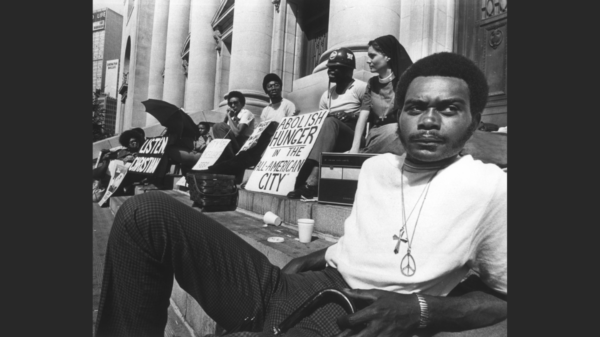
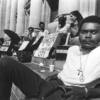
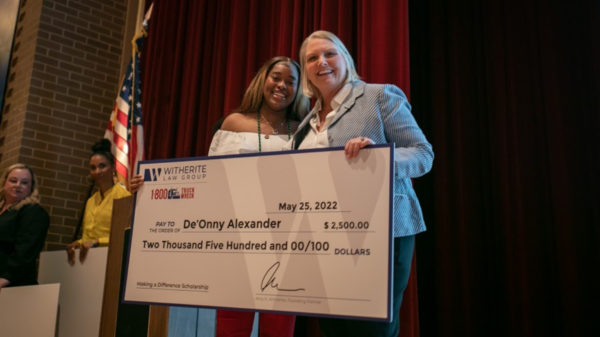

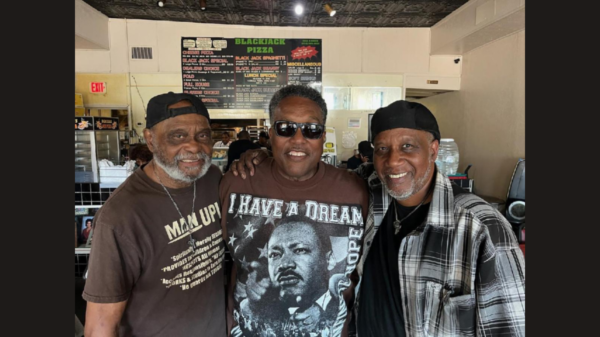
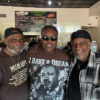
You must be logged in to post a comment Login